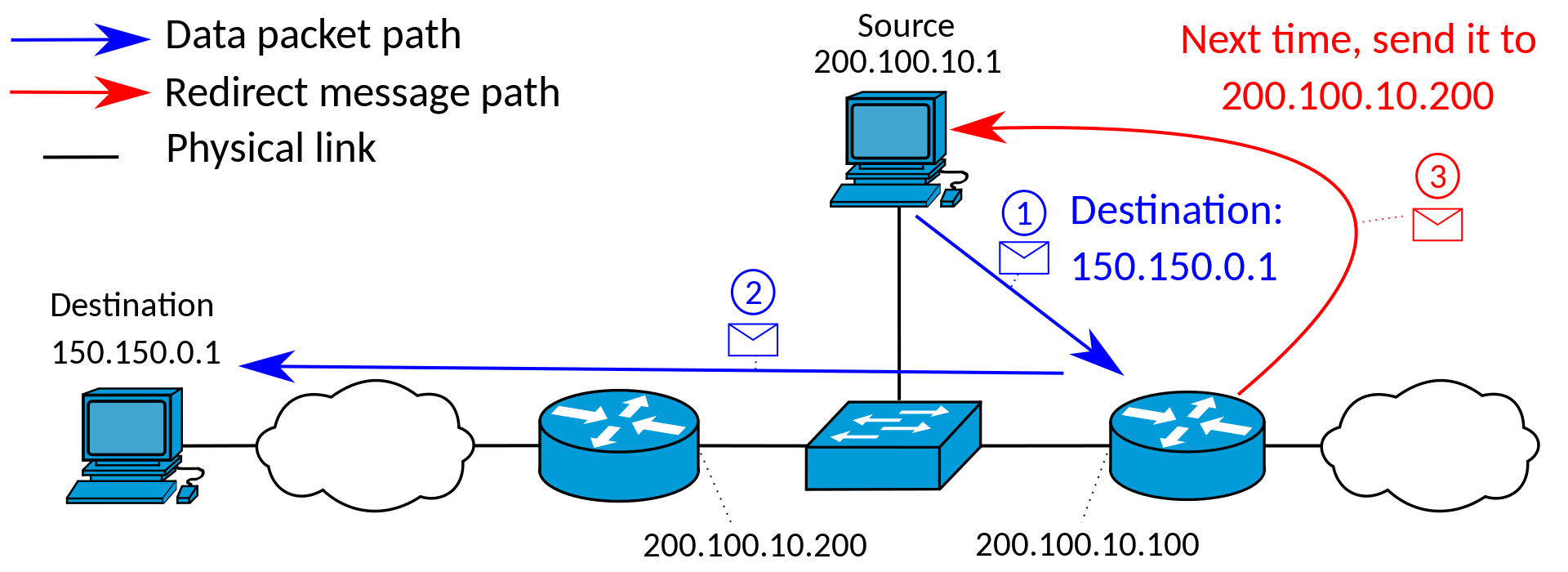Internet Control Message Protocol (ICMP) header¶
ICMP is a supporting protocol in the Internet protocol suite.
Type¶
- ICMP type, see § Control messages.
Code¶
- ICMP subtype, see § Control messages.
Checksum¶
- Internet checksum (RFC 1071) for error checking, calculated from the ICMP header and data with value 0 substituted for this field.
Rest of header¶
- In the four-byte field, contents vary based on the ICMP type and code.
Control messages¶
The value in the type field identifies control messages. The code field gives additional context information for the message.
| Type | Code | Description |
|---|---|---|
| 0 – Echo Reply | 0 | Echo reply |
| 3 – Destination Unreachable | 1 | Destination network unreachable |
| 3 – Destination Unreachable | 2 | Destination protocol unreachable |
| 3 – Destination Unreachable | 3 | Destination port unreachable |
| 5 – Redirect Message | 0 | Redirect Datagram for the Network |
| 5 – Redirect Message | 1 | Redirect Datagram for the Host |
| 8 – Echo Request | 0 | Echo request (used to ping) |
| 11 – Time Exceeded | 0 | TTL expired in transit |
| 11 – Time Exceeded | 1 | Fragment reassembly time exceeded |
| 30 – Traceroute | 0 | Information Request |
Redirect¶
Redirect requests data packets be sent on an alternative route. ICMP Redirect is a mechanism for routers to convey routing information to hosts.
Time exceeded¶
Time Exceeded is generated by a gateway to inform the source of a discarded datagram due to the time to live field reaching zero. A host may also send a time-exceeded message if it fails to reassemble a fragmented datagram within its time limit.
The traceroute utility uses time-exceeded messages to identify gateways on the path between two hosts.

